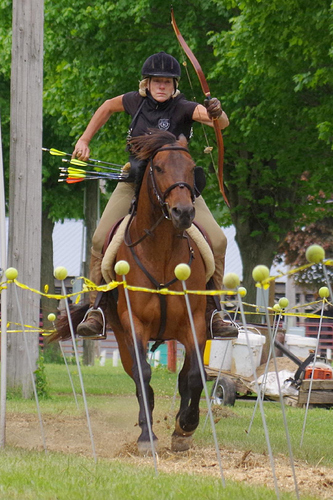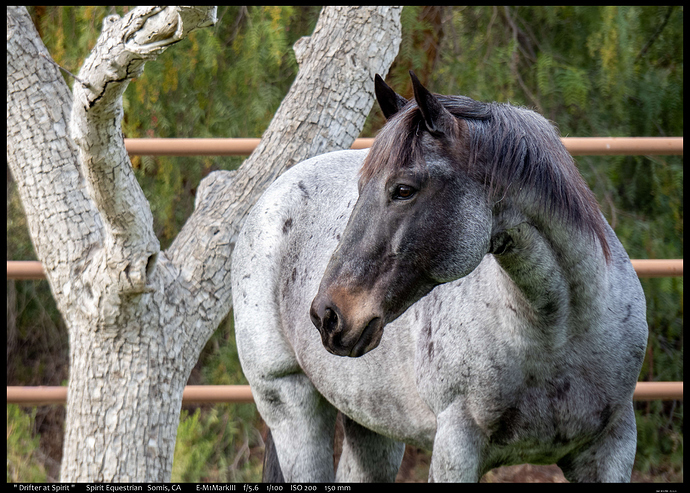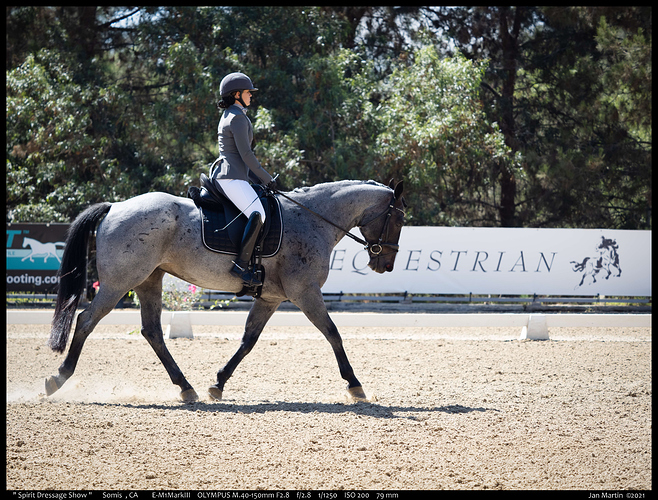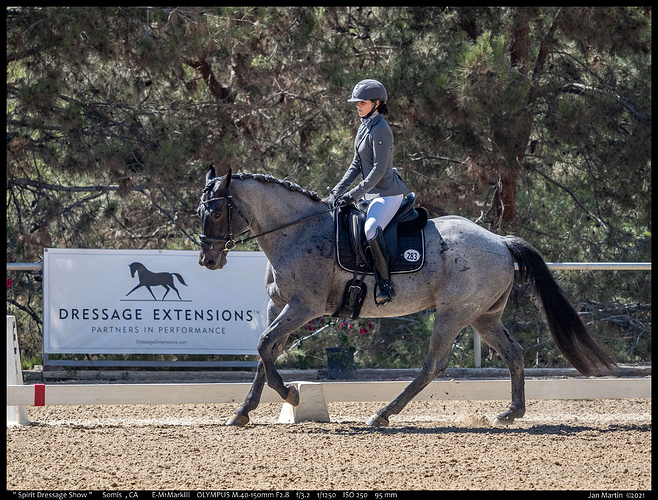Beautiful horse!
Hancock bred horses, today inbred ones, do have many of Hancocks traits, is what breeders bred for, no surprise.
The ones true to those traits are real workhorses, excellent to have under you when things get tough, but not given to being very friendly, more the stick in the mud, dry humor type.
They take life and work and just everything seriously, want to have a task and someone that will stick with it, no lollligagging around.
If you are a more serious person and like to hold high standards and stick with the plan, you will get along with them fabulously.
If you want a pet along with a horse you can do things with, that chills out and smiles and likes hanging out after work, that is just not what they really want to do with their time, but will do it if you insist, for a bit.
In a way they tend to have a similar temperament as heeler dogs, a little on the serious side, takes a serious minded person to get along with those.
Where life is more tough, human and their animal helpers part of your work, that work hard and takes all your days, who best to have with you than those that also thrive with that kind of life?
If you measure your time and have a more balanced use of it, getting things done but also time to relax and fool around, then you need a type helper that will not take life quite so seriously.
Of course, how you raise any and life experiences will moderate or enhance any traits, along with what else is there, other breeding helping tone down the more salient breed traits.
Many old time breeder of ranch horses like to keep the stronger Hancock traits but crossed with Driftwood ones toning them down some, producing if all went well a more amenable, less demanding horse to handle, ride and live with.
Still, every horse is an individual.
Thru breeding we try to repeat the traits we are looking for.
If those are expressed and how strongly and what other are in the mix is still up to luck, genetic lottery, each one individual it’s unique blend.
Humans live and thrive by looking for patterns in everything, is how we navigate our world, including what all goes into the horse we have.
Still, is best to keep in mind that we will be surprised both ways, when we find what we expect given a breeding behind a horse and when new traits surface.
With Hancock bred horses, their traits seem to be dominant, easier to count on them in horses bred like them.








